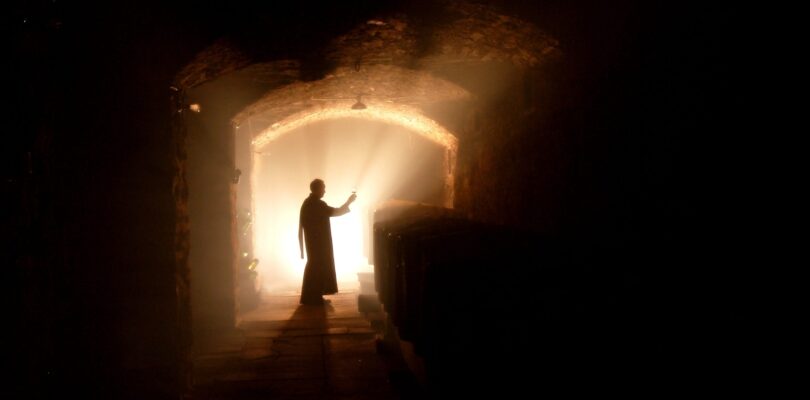If you read our story about Historical Figures Who Probably Drank Too Much, you probably noticed that wine was the main (well, only) drink of choice for the ancient world. When did the stronger stuff hit the market? When was the first, say, whiskey developed?
It’s said that ancient Mesopotamia (or Egypt, possibly) first developed distillation to create perfumes, but there’s no written records to prove this. It wasn’t until the ancient Greeks wrote of distilling sea water that the process was recorded. After the Romans fell, their traditions were mostly lost to history, and wine remained the standard alcohol. Areas like Scotland and Ireland struggled to make wine with their colder climates, and were looking for a different way to imbibe (you need a stiff drink when it gets so cold).
For hundreds of years the only people who used the distillation process were the alchemists, “scientists” of the medieval era. Ramon Lull, a former-alchemist-turned-monk in Spain, first distilled alcohol using wine sometime in the 1300s. He called it “aquavitae,” or water of life. It was believed to be “healthy” because it made drinkers feel good. Sound logic, I suppose, so drink up!
In 1494, aquavitae was distilled by an order of monks at the Lindores Abbey. It likely wasn’t aged at all and looked very different from whiskeys we have today–in fact, not much about how it was made is really known, but there are records of the barley purchased and a distillation process. It’s also believed there was whiskey being made in Ireland before this with grain mash.
Now you have more than enough information to bore your friends at your next party. But hey, maybe someone else will find it as interesting as we do. Either way, we have these early pioneers to thank for spirits we enjoy today, so be sure to think of them when you have your next glass of whiskey.





